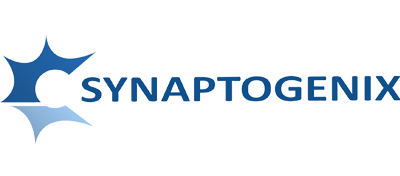Neurotrope Enters Into Research Collaboration With the International Rett Syndrome Foundation / Rettsyndrome.org
NEWARK, N.J., May 18, 2016 /PRNewswire/ — Neurotrope, Inc. (OTCQB: NTRP), a clinical-stage company developing a disruptive therapy for the treatment of severe Alzheimer’s disease (AD), is pleased to announce that it has entered into a research collaboration with the International Rett Syndrome Foundation, DBA: Rettsyndrome.org, to explore the potential of Bryostatin for the treatment of Rett syndrome.
Between 85% and 95% of Rett Syndrome cases are reported to be caused by a mutation of the MECP2 gene. This mutation causes a conserved pathology that comprises impaired neurite development and impaired synaptic connectivity, along with a corresponding impairment in social and cognitive functions. Such synaptic dysfunctions result from genetically altered functions of postsynaptic density proteins. Normal neurite growth and postsynaptic development may be regulated and augmented by growth factors, such as brain derived neurotrophic factor (BDNF). Drugs that promote BDNF function may therefore be of use in the treatment of progressive developmental disorders such as Rett. Thus, there is a need for the development of therapies that activate key synaptic growth factors such as BDNF, insulin like growth factor (IGF) and nerve growth factor (NGF), which regulate and augment normal neurite growth and postsynaptic development in patients suffering from Rett syndrome. Bryostatin, by targeting PKC epsilon, activates these growth factors.
As part of the collaboration, The National Cancer Institute supplied the drug to conduct the study under the Rettsyndrome.org Scout Program. The purpose of the study is to run a behavioral battery of tests to screen and assess the potential for Bryostatin for the therapeutic treatment of Rett syndrome in a mouse model. Assessments will include body weight, grip strength, gait analysis, and neurologic/behavioral parameters. All raw data, samples and specimens arising from the performance of this study will remain the property of Neurotrope. The study will be funded and managed by Rettsyndrome.org.
“We are most excited to be chosen to participate in The Scout Program and are hopeful that Bryostatin PKCe activation properties, based on the scientific work of Dr. Dan Alkon, the Company’s Chief Scientific Officer, may bring some benefit to the thousands of individuals afflicted with Rett syndrome,” stated Charles S. Ramat, President and Chief Executive of Neurotrope, Inc. “In addition to our focus on Alzheimer’s disease and our present Phase 2b clinical trial, this is an important step in Neurotrope’s commitment to orphan diseases in addition to our ongoing efforts in Fragile X syndrome and Niemann Pick Type C disease.”
”Neurotrope Bioscience has a very exciting drug in regard to Rett syndrome and I am very anxious to see its actions in our Scout Program. This is the exact type of compound we are looking for and every indication is that it is pointed at a very important pathway with regard to Rett syndrome biology,” stated Dr. Steven Kaminsky, Chief Science Officer at the International Rett Syndrome Foundation.
About Rett Syndrome
Rett syndrome is a rare non-inherited genetic postnatal neurological disorder that occurs almost exclusively in between 1:10,000 to 1:15,000 live female births and leads to lifelong impairments, affecting nearly every aspect of a child’s life: their ability to speak, walk, and eat is effected, seizures develop and scoliosis occurs, and many develop irregular breathing patterns. Those diagnosed with Rett syndrome require maximum assistance with basic daily activities. The hallmark sign of Rett syndrome is near constant repetitive hand movements. Cognitive assessment in children with Rett syndrome is complicated, but they understand far more than they can communicate to us, evidenced by their bright and attentive eyes, and their ability to express a wide spectrum of moods and emotions.
About the Scout Program
Rettsyndrome.org aims to accelerate more discoveries to the clinic and committed over $1 million towards the Scout Program, a Drug Discovery Screen in a mouse model of Rett syndrome. The Scout Program will aggressively accelerate the testing of compounds, whether new or repurposed, through standardized preclinical studies in the Rett mouse model. This program will test many novel compounds and small molecules.
About Rettsyndrome.org
Rettsyndrome.org is the most comprehensive nonprofit organization dedicated to accelerating research of treatments and a cure for Rett syndrome and related disorders while providing information and family empowerment. As the world’s leading private funder of Rett syndrome research, Rettsyndrome.org has funded over $38M in high-quality, peer-reviewed research grants and programs to date. The organization hosts the largest global gathering of Rett researchers and clinicians to establish research direction for the future. Rettsyndrome.org, a 501(c)3 organization, has earned Charity Navigator’s most prestigious 4 star rating year after year. To learn more about our work and Rett syndrome, visit www.rettsyndrome.org or call (800) 818-7388 (RETT).
About Neurotrope
Neurotrope BioScience, Inc., a wholly owned subsidiary of Neurotrope, Inc., is at the forefront of biotechnology companies having a focus on developing a novel therapy for the treatment of moderately severe to severe Alzheimer’s disease. The scientific basis of our treatment is activation of Protein Kinase C isozymes ε and α by bryostatin, a natural product, which can result in repair of damaged synapses as well as synaptogenesis, reduction of toxic amyloid generation, and enhancement of memory and learning, thus having the potential to improve cognition and behavior in Alzheimer’s disease.
Neurotrope is also conducting preclinical studies of bryostatin as a treatment for Fragile X Syndrome and Niemann-Pick Type C disease, two rare genetic diseases for which only symptomatic treatments are currently available. The Food and Drug Administration has granted Orphan Drug Designation to Neurotrope for bryostatin as a treatment for Fragile X Syndrome. Bryostatin has undergone testing in over 1400 people establishing a large safety database.
NTRP has exclusively licensed technology from the Blanchette Rockefeller Neurosciences Institute for Alzheimer’s disease and Fragile X Syndrome, has a world-wide, exclusive license with the Icahn School of Medicine at Mt. Sinai for Niemann-Pick Type C disease and is partnered with Stanford University to synthesize and find the next generation bryostatin – called bryologs.
About The Blanchette Rockefeller Neurosciences Institute
Located in Morgantown, WV, BRNI, at West Virginia University, is a unique, independent, non-profit institute dedicated to the study of memory and finding solutions to memory disorders. BRNI was founded in 1999 in memory of Blanchette Ferry Hooker Rockefeller, an Alzheimer’s patient and mother of U. S. Senator John D. Rockefeller IV. BRNI is operated in alliance with West Virginia University as well as in collaboration with other academic institutions.
Forward-Looking Statements
Any statements contained in this press release that do not describe historical facts may constitute forward-looking statements. These forward-looking statements include statements regarding the proposed study and timing of initiation, and continued development of use of bryostatin for Alzheimer’s disease and other cognitive diseases, and the Company’s ability to list its common shares on a major stock exchange. Such forward-looking statements are subject to risks and uncertainties and other influences, many of which the Company has no control over. Actual results and the timing of certain events and circumstances may differ materially from those described by the forward-looking statements as a result of these risks and uncertainties. Factors that may influence or cause actual results to differ materially from expected or desired results may include, without limitation, the Company’s inability to obtain adequate financing, the significant length of time associated with drug development and related insufficient cash flows and resulting illiquidity, the Company’s patent portfolio, the Company’s inability to expand the Company’s business, the Company’s inability to meet listing requirements for major stock exchanges, significant government regulation of pharmaceuticals and the healthcare industry, lack of product diversification, availability of the Company’s raw materials, existing or increased competition, stock volatility and illiquidity, and the Company’s failure to implement the Company’s business plans or strategies. These and other factors are identified and described in more detail in the Company’s filings with the SEC, including the Company’s Annual Report on Form 10-K for the year ended December 31, 2015 and Quarterly Report on Form 10-Q for the quarter ended March 31, 2016. The Company does not undertake to update these forward-looking statements.
Please visit www.neurotropebioscience.com for further information.
For additional information, please contact:
Neurotrope Bioscience
Charles Ramat, Chief Executive Officer
973-242-0005
cramat@neurotropebioscience.com








